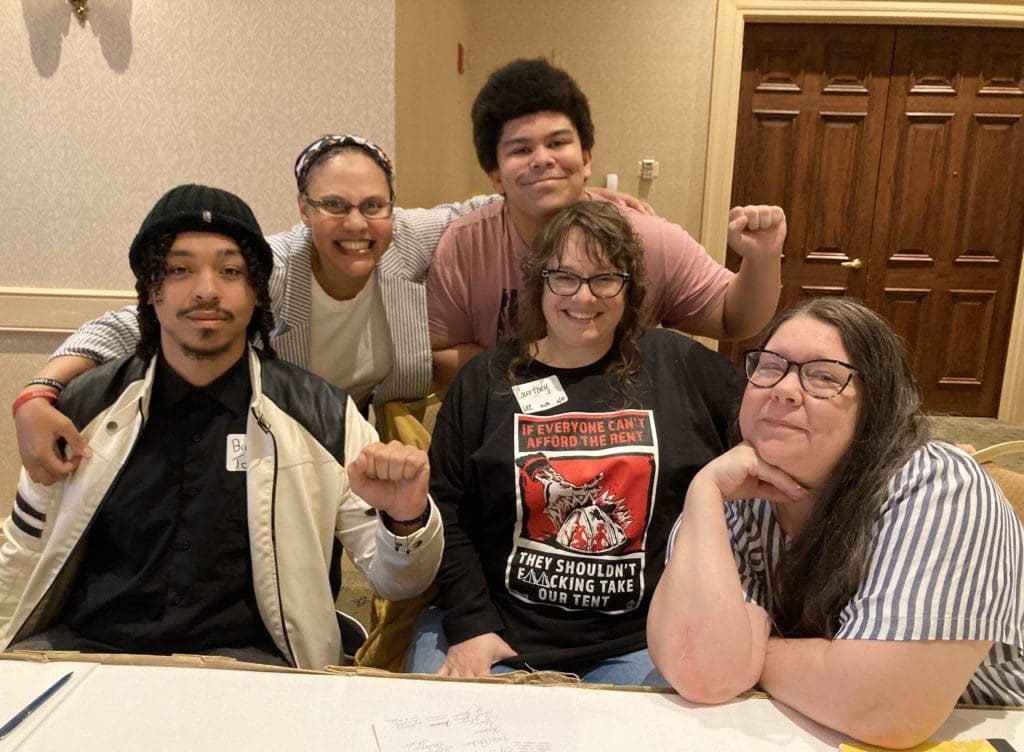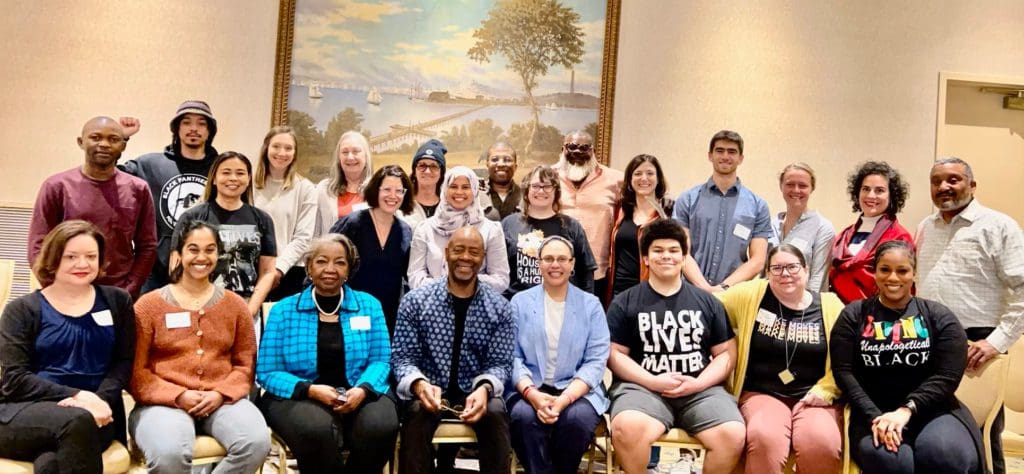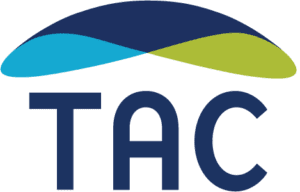Welcome!
Please enjoy our summer newsletter from the Systems Alignment Innovation Hub, operated by the Technical Assistance Collaborative’s Racial Equity Action Lab with support from the Human Services Research Institute (HSRI) and supported by the Robert Wood Johnson Foundation’s (RWJF) national Systems for Action Research Program. Read on for the latest news from our Community Power Network, Free Technical Assistance & Consultation Services, Targeted Research Funding, and Tools, Guides, & Resources projects.
This edition of the SAIH newsletter is dedicated to the memory of our beloved Max Taylor, who was a member of the Community Power Network and a staunch advocate for people living with mental health disabilities. Max was a brilliant researcher and community educator who coined the term “prejudice against lived experience.” He passed away in April 2024, and his teachings and fierce advocacy will forever live in our hearts.
Targeted Research Funding

Lead facilitator Regina Cannon with Lived Experience Coalition members Brother Token, CJ Walker, Courtney Love, & Rhonda Walker at the SAIH grantee gathering in May 2024.
Through targeted research funding, SAIH supports community-level health equity innovators in assessing and improving the feasibility and evaluability of their systems alignment ideas, eventually creating a strong research proposal. On May 9 and 10, the SAIH team was excited to gather with grantees face-to-face for the first time, including representatives from Community ConneXor in Nashville, TN; Mandela Yoga Project in Cambridge, MA; United Indians of All Tribes Foundation in King County, WA; and the WA State Lived Experience Coalition. Guests also included members of RWJF’s Systems for Action program and our RWJF Program Officer, Isabel Cuervo.
Regina Cannon, Executive Director of Arc4Justice, was the lead facilitator for this two-day learning session; our cofacilitator was Lori Pampilo Harris, an independent public policy adviser and systems thinker whose expertise centers Indigenous ways of knowing and decolonizing practices. The convening engaged SAIH grantees in understanding and advancing mental models that partner systems might need to adopt if they want to work successfully with Black, Brown, and Indigenous communities. Participants also learned how to map and diffuse power with intended partners and with public health, medical, and social service systems.

SAIH grantee gathering, May 2024
The Community Power Network
We are pleased to announce the launch of the SAIH Community Power Network! Formerly the Peer Learning Network, this ever-changing, ever-brilliant group of community-based leaders and advocates has refocused its identity to align with today’s needs and opportunities.
This ongoing multicultural, multiracial forum explores the potential for systems alignment initiatives to improve outcomes for Black, Brown, and Indigenous (BBI) communities. We build community power to uplift lived experience, Indigenous and cultural wisdom, community values and assets, and culture; to conduct research that decolonizes and reimagines “rigor” in evaluating the feasibility and impact of systems alignment innovations; to leverage transdisciplinary expertise and other ways of knowing; and to move evidence into action.
The Community Power Network centers BBI-led community-based organizations, marginalized people and communities, and organizations with a focus on undoing systemic racism as it intersects with other forms of oppression. Undoing systemic racism takes all of us, and we extend a warm embrace to all researchers, funders, and organizations working to dismantle systemic oppression.
Research & Activities
Recent resources and learning opportunities from the RWJF and the Systems for Action program of special interest to the SAIH community include:
- Three Ways Local Solutions Can Improve Maternal and Birthing Health (A Culture of Health blog post). Access to dignified health care is not just a goal; it’s a fundamental right. This blog post shares community-driven solutions and policies that can better support all birthing people.
- An Aligned Delivery and Financing Model to Address Food Insecurity and Social Needs of Low-Income Pregnant Women. Part of the Systems for Action Research-in-Progress webinar series, this presentation will describe a study that is evaluating the effectiveness of the Nourishing Beginnings program. Nourishing Beginnings uses integrated data, screening, and referral systems combined with community health worker support to link pregnant people in need with healthy food delivery or direct cash assistance for food purchases. July 10, 2024, at 12:00 ET.
In April, SAIH Associate Director Rachel Post attended the annual conference of the Othering & Belonging Institute in Oakland, CA. The Institute, based at the University of California Berkeley, advances groundbreaking approaches to transforming structural marginalization and inequality. One of many resources shared at the conference was the Transformative Research Toolkit, published in March of this year. As summarized by its authors, the toolkit “refers to a wide range of processes where people center their lived experience and visions for social transformation, lead a process that systematically builds on this knowledge through investigation and learning rooted in their own ways of knowing, and take action to influence public narratives, policies, and power dynamics. In a nutshell, transformative research is any research process that positively transforms the people directly involved, the communities they are part of, and the structures shaping their lives.”
Stay tuned for SAIH’s forthcoming resource “guides,” which will feature a recorded interview with one of the Toolkit’s authors.
The Systems Alignment Innovation Hub (SAIH) helps medical, social service, and public health providers in low-income and BIPOC communities to dismantle inequities and improve health and well-being for all. SAIH is operated by the Technical Assistance Collaborative’s Racial Equity Action Lab with support from the Human Services Research Institute (HSRI), and is supported by the Robert Wood Johnson Foundation’s national Systems for Action Research Program.


